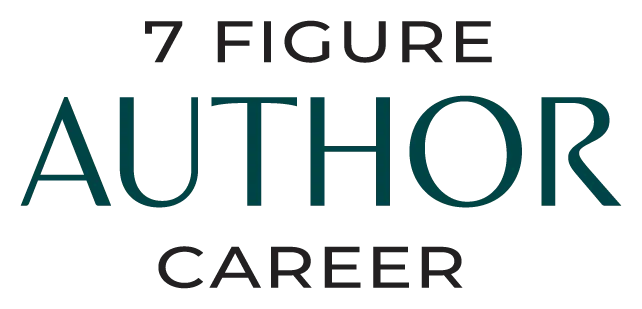
How a Small Circle of Passionate Readers Can Launch Your Novel into the World
When you imagine launching your novel into the world, it’s tempting to focus on the big-picture dreams - bestseller lists, rave reviews, and legions of devoted fans eagerly awaiting your next release. But seasoned authors understand a different reality: real success begins on a much smaller, more personal scale with your first 100 readers.
These early supporters are more than just readers. They’re your foundation, your word-of-mouth engine, and the first voices that help your story find its place in the world. Cultivating a tight-knit micro-audience is not only one of the smartest ways to build momentum - it can be more impactful than any paid campaign or social media splash. For writers learning how to advertise your novel effectively, starting with a loyal, organic base is often the most powerful strategy.
Why the First 100 Readers Are So Important
They Create the First Ripple
Every successful novel starts with a ripple effect. Those first readers are the ones who post the earliest reviews, talk about your book in their circles, and give your work legitimacy in the eyes of strangers. When someone comes across a book with a handful of enthusiastic reviews and a modest fanbase already talking about it, it immediately feels more trustworthy and more worth their time.
These early readers help break through the dreaded “cold start” problem. Whether you’re publishing traditionally or independently, no book starts with momentum. It must be built—and your first 100 readers are your first engine.
They Help You Improve as an Author
Before your book is even published, a core group of engaged beta readers or ARC (advance reader copy) reviewers can offer valuable feedback on everything from plot pacing to character believability. This group becomes a sounding board, not just for what works in your writing, but how your story lands emotionally with your audience.
You don’t need a massive following to get insightful critique. Sometimes, 10 thoughtful comments from a micro-audience are more useful than 1,000 vague compliments from a general readership.
They Build Organic Buzz
Buzz is not built overnight. It’s built by people who care and who share. Your micro-audience is likely to be made up of individuals who either already follow your journey as a writer or have a vested interest in your success. They’ll share your book because they love it, not because they were paid to promote it. This authenticity is gold.
In a world flooded with recommendations, we trust the ones that feel personal. A passionate reader recommending your book on a TikTok video, a podcast, or a Goodreads thread can have a domino effect and it often starts with just one person.
They Provide Social Proof
Social proof is the idea that people are influenced by the actions and opinions of others. A handful of thoughtful reviews, testimonials, or social media posts from real readers can be more persuasive than any advertisement.
Your first 100 readers offer a way to generate this early proof. They can help populate Amazon with initial ratings, leave glowing reviews on Goodreads, comment on your launch posts, or tag you in Instagram photos of their favorite scenes. Each piece of interaction tells potential readers: this book is worth your time.
How to Find Your First 100 Readers
Start with Your Network But Be Strategic
Family, friends, coworkers, and fellow writers are often willing to read your work. But make sure you seek out readers who are interested in your genre. If you’ve written a psychological thriller, your poetry-loving aunt might not be the best test case. You want people who genuinely love the kind of book you’ve written.
Leverage writing groups, alumni connections, professional circles, and local clubs to find your first handful of readers. From there, build outward.
Utilize Your Email List
Even if you’re just starting, build an email list. Offer something of value, perhaps a sample chapter, a short story, or behind-the-scenes content, in exchange for a subscription. Treat this list like gold. These are the people most likely to want to be your first readers.
Engage them early. Share updates on your publishing journey. Ask for beta readers or ARC volunteers. Your email subscribers are more invested than random followers, and they’re more likely to become champions for your book.
Join Reader-Focused Communities
There are countless online communities filled with passionate readers eager to discover new voices. Look to:
· Goodreads groups focused on your genre
· Facebook reading groups
· Reddit threads like r/books, r/indieauthors, or r/writing
· BookTok and Bookstagram for genre hashtags and reader trends
Engage authentically. Don’t spam. Share your love for books, give value, and when the time comes, gently introduce your own.
Nurturing the Relationship
Getting readers is one thing - keeping them is another. A strong micro-audience isn’t just about volume. It’s about depth of connection.
Give Early Access and Behind-the-Scenes Perks
Let your first readers feel like insiders. Give them early access to chapters, exclusive Q&A sessions, sneak peeks at cover designs, or a say in your next project’s direction. The more connected they feel to your journey, the more likely they are to support you publicly.
Show Your Appreciation
A heartfelt thank-you can go a long way. Whether it’s a shout-out on social media, a handwritten note, or a name in the acknowledgments, let them know they matter. Readers who feel appreciated are more likely to stay loyal and spread the word.
Encourage Reviews and Sharing (Gently)
After your book is launched, don’t be afraid to ask for support - but do it in a human way. Remind your readers how much a review means. Share how they can help you grow and thank them when they do.
Even a single review can influence someone browsing your book’s page. A micro-audience that leaves 20–30 reviews is a powerful force for visibility.
Small Numbers, Big Impact
We live in a world that celebrates scale - more followers, more clicks, more likes. But for authors, especially emerging ones, depth matters more than reach.
Your first 100 readers aren’t just statistics. They’re real people who believe in your story, who feel moved by your words, and who can become the spark that lights the fire. If cultivated with care, these readers can carry your book further than you imagined one honest recommendation at a time.
So don’t worry about reaching the masses right away. Focus on creating meaningful connections. Because the power of 100 passionate readers? That’s where literary momentum begins.
Ready to grow your first 100 readers? Start now: build that list, engage your circle, offer early chapters, and nurture those connections. The best launch pad for your novel isn’t a massive marketing budget - it’s a small group of people who truly care.
